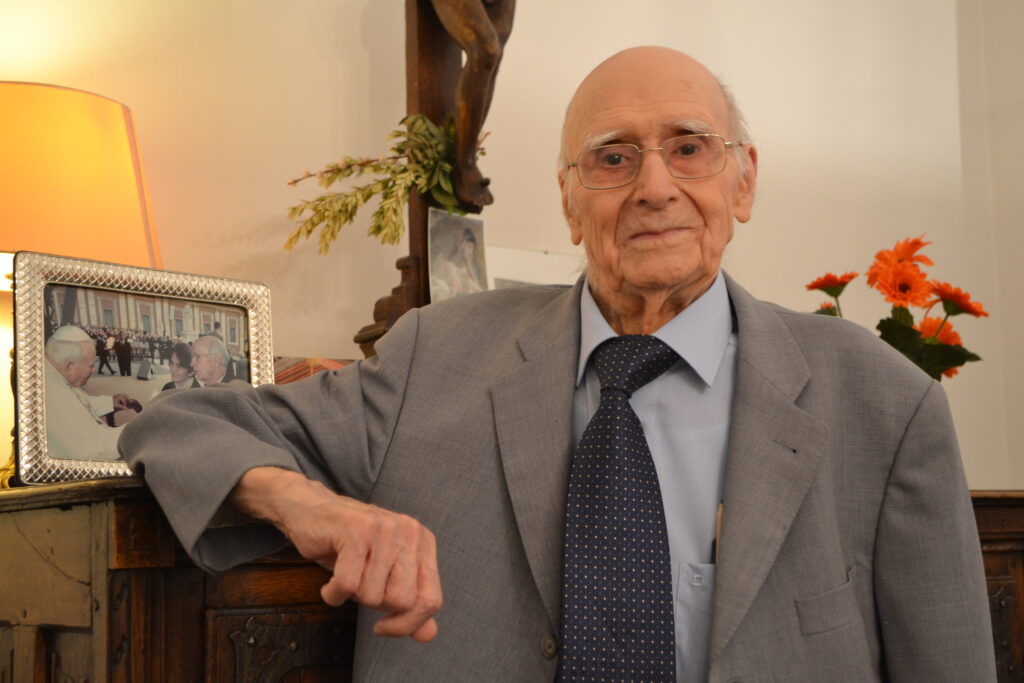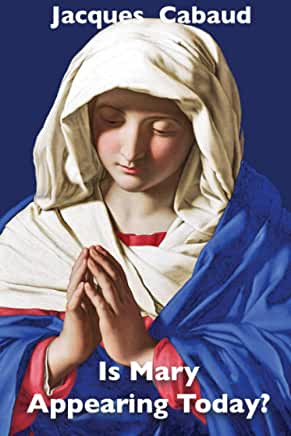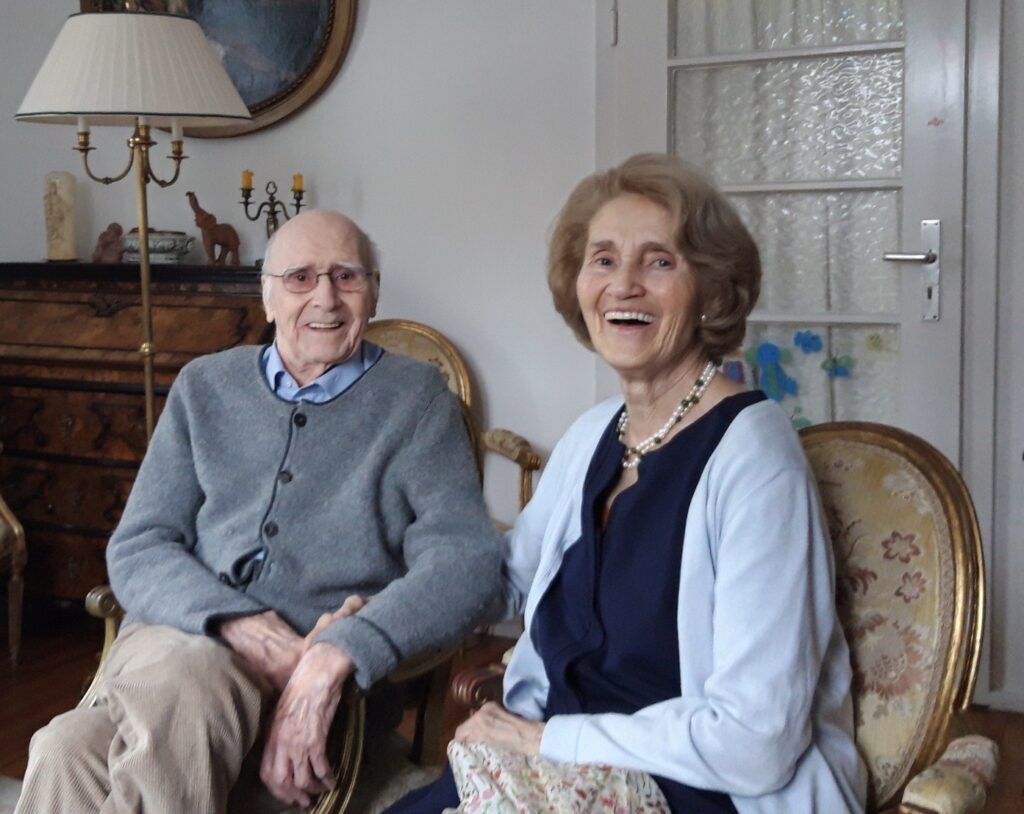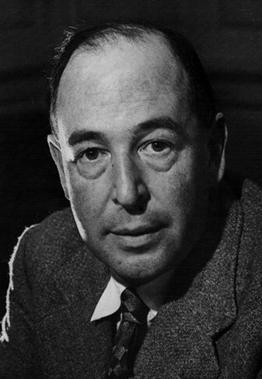The Folly of God and God’s Fools – Eulogy for Jacques Cabaud (1923-2022)
Marie Cabaud MeaneyI gave this eulogy at my father’s funeral. Some slight changes have been made to the original text.
God is anything but conventional. His garden is full of the most diverse flowers, manifesting His infinite creativity. But with Jacques Cabaud, He created a particularly extravagant plant. To perceive merely his originality, however, would mean missing his deepest core – which was to love that “Love who holds us in His arms since the beginning”. His whole life my father wanted nothing else but to respond to God’s folly of love by doing His will. Jacques Cabaud’s writings, his intellectual life, and everything he did or said were meant as a service to God. Sanctity was his goal (which after all, is the minimum requirement according to Simone Weil). And when I look at saints such as Philip Neri or Grignion de Montfort, then originality is certainly not an impediment to sanctity.
My father came from the French Haute Bourgeoisie, yet nothing was more to his distaste than being bourgeois or conventional. The love of poverty of St. Francis of Assisi attracted him, sometimes to the distress of his family who suffered from having to spend nights in rundown hotels, just for the sake of avoiding the lures of luxury. Like Francis, he wanted to be a fool for Christ; he preferred to appear a bit crazy and quixotic rather than professorial or to receive social recognition.

Some found him severe-looking, and others felt overwhelmed by his intellect and stylistic perfectionism. Those who got to know him better, however, discovered his incredible sweetness, great sensitivity, and kind heart. He was often deeply moved by the tragic suffering of others as well as by beauty and holiness.

After Simone Weil (though actually before) came the true love of his life – the Blessed Mother. He followed her from one place of the apparition to the next, deeply moved that Mary, the Queen of Heaven, was taking the trouble to visit us so often. He wrote a book on her, first in French, then in English. And since she is preparing us for difficult times, he penned another one on the End Times, shedding light on the prophecies regarding this day and age.
But none of this could have happened without another woman in his life – my mother who tended him through his many years of sickness and who searched assiduously until she found alternative medical methods that would keep him alive (our great thanks go to his wonderful doctors!). Rosemarie supported him and dispelled the gloom that tended to engulf him. Without her, he would not have reached this biblical age of 99 years.

Originally, he had wanted to become a priest. His mother who died when he was merely five years old thought he might have a priestly vocation. As a young man, he entered the seminary but discerned after two years that it was not his path. He suffered doubts about whether he had made the right choice until he went to see St. Padre Pio in Italy. Padre Pio could read souls, as is well known, and as my father came to experience. The Saint of Pietrelcina told him that marriage was his vocation, not the priesthood. My aunt Martha, who sometimes had prophetic dreams, told my mother in 1967 that within a year she would marry a Frenchman coming over the water, which, as it turned out, was the Atlantic, since my father lived in the United States at the time (my mother’s family is German). It was a match made in heaven, but that, as we know, involves the cross. Though my parents lived in New York at first, they moved to Germany which was supposed to be an interim solution but became their home for 45 years. It felt like an exile to my father, for intellectually he was too French to enjoy engaging with German academics (though there were some exceptions). He would never live in “la douce France” again.
My father died on the feast-day of the wonderful Saint Teresa of Calcutta, who loved the poorest of the poor like Christ. Her great fecundity grew out of a terrible cross: after some mystical graces, she underwent a dark night of the soul; during her last 50 years, God seemed absent. Perhaps she wanted to be the one to welcome my father and bring him to the pearly gates to show him that every tear would be wiped away in Heaven. Though he didn’t suffer from something as radical as Mother Teresa’s dark night, the Jansenism permeating French culture deeply into the 20th century, his mother’s early death, his father’s depressive side, and his sustained ill health left deep wounds in him, casting a shadow over his life that only lifted occasionally. Yet he soldiered on, never giving in to despair, going through his own dark night of the soul.

But now to the joys of Heaven: like C.S. Lewis, I like to believe that everything beautiful and good on this earth will also exist in the new Heaven and the new Earth that God promised He would create at the End of Times. I imagine Oxford, Cambridge and the Sorbonne existing there (in a greatly purified form) and my father in discussion with Cardinal John Henry Newman, C. S. Lewis, Simone Weil, and many others.
Mozart and Bach will continue composing their heavenly music. And eternity will not suffice for intellectuals to attempt to capture God’s infinite depth and holiness while adoring Him. My father has done his work. He fought the good fight and finished the race. It remains for my mother and me to continue publishing his unfinished works and translating them, such as his books on Martin Luther.
And there is something else that we can all do for him, namely pray. God is infinitely good and holy, and because of that, He gives us some extra time – though earthly time has ended – to purify ourselves so that we can appear before Him and take part in the Heavenly feast that is expecting us. In my heart of hearts, I believe that my father is already enjoying the beatific vision, but we cannot have any certitude when it comes to the secrets between God and a soul. So thank you for continuing to pray for my father and also for us. God grant him eternal rest, O Lord, and let Your perpetual light shine upon him. May he rest in peace.
Marie Cabaud Meaney is the author of Literature and Apologetics: Simone Weil’s Christological Interpretations of Ancient Greek Texts (2007) and (in German) Brücken zum Übernatürlichen: Simone Weil über das Böse, den Krieg und die Religion (2018).
4 Recommendations
